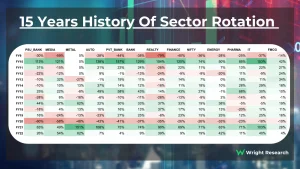
Economic indicators provide investors with insight into the state of the economy, helping them anticipate market shifts. Released periodically, economic indicators offer traders and analysts alike with valuable data for predictions of market shifts.
An expanding manufacturing sector typically indicates economic expansion and, thus, is often associated with bullish stock market trends. Conversely, lower unemployment rates increase consumer spending and corporate profits – encouraging investors to purchase stocks.
Economic Indicators
The stock market’s movements depend on economic indicators. These reports, typically released monthly by government agencies, allow analysts and investors to accurately gauge the state of an economy. Economic data may either be leading – meaning something might happen soon in the future; lagging – showing trends; or coincident – occurring simultaneously with another economic event like home sales.
These indicators include GDP, unemployment rates and inflation measures such as CPI. While these don’t always have direct impacts on stock prices, investors must understand their significance to create an efficient portfolio that reflects your financial goals. Understanding which economic indicators have influence over markets allows investors to do just that.
Interest Rates
An interest rate change has a substantial effect on equity investments by altering the cost of borrowing money to invest and expand businesses. Furthermore, higher rates hinder economic expansion causing stock prices to decline as companies’ earnings and sales decline resulting in decreased stock value.
Rising rates also boost the profitability of financial stocks, which typically rely more heavily on lending than other sectors. Cyclical and value stocks tend to suffer in this environment.
Understanding how global indicators, like GDP trends and foreign trade figures, impact stock markets around the globe gives investors a more comprehensive perspective of market movements. With this insight comes an ability to anticipate potential shifts in investor sentiment or direction. Disruptions to international trade may impact multinational businesses that trade on different exchanges as well as stock prices traded on those exchanges – this interdependency prompting investors to prioritise stability over risk when making investment decisions.
Employment
A healthy labor market generally results in higher consumer spending, an increase in corporate profits and rising stock prices. By contrast, an unemployment rate can lead to reduced income levels and spending habits, having an adverse effect both on stocks and the economy as a whole.
Analyzing historical data reveals fascinating correlations between economic indicators and stock market trends. For instance, periods of high inflation can have an adverse impact on stocks as its sharp rise signals that prices are growing faster than incomes, dissuading consumers from purchasing products and thus slowing economic expansion.
So, low inflation rates are considered favorable to stock markets; however, persistently high inflation rates can be detrimental as they increase costs of living and cause businesses to incur losses; additionally they could lead to interest rate hikes that reduce consumer spending. Examining different indicators provides insight into how specific industries respond to changing economic conditions.
GDP
As investors and traders navigate through the complicated terrain of the stock market, economic indicators serve as signposts. From GDP and unemployment rates to inflation metrics and interest rates, economic indicators offer investors and traders insight into market conditions that directly affect stock prices. Understanding these metrics gives you greater confidence when forecasting market shifts with greater accuracy.
As GDP growth slows down in a country, business confidence and investment may decrease, which in turn reduces corporate earnings and share prices. Furthermore, rising inflation rates can raise borrowing costs and cut into company margins; both effects can adversely impact the stock market as well as reduce consumer spending.
However, different sectors respond differently to GDP growth. Financial sector stocks may benefit from strong economic expansion, while technology and consumer discretionary stocks could suffer as consumer spending falls significantly.







